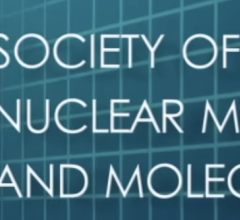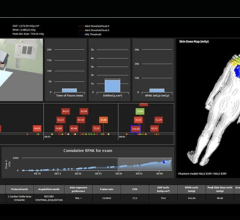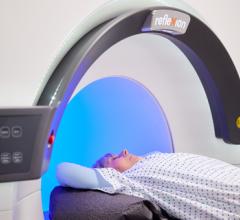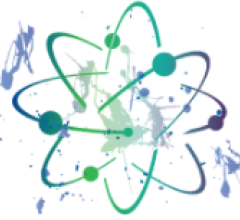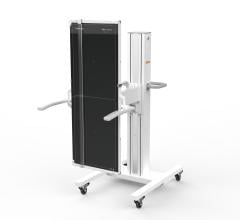
Rising concerns over radiation overexposure teamed with a growing focus on improving the quality of patient care are two key drivers of today’s radiation dose management market.
Rising concerns over radiation overexposure teamed with a growing focus on improving the quality of patient care are two key drivers of today’s radiation dose management market. The adoption of both nuclear medicine and interventional radiology is anticipated to create lucrative growth prospects for this market as well. Researchers state that the lack of reimbursement policies for radiation dose management solutions is expected to hinder the market growth.¹
Market Growth
The “Global Radiation Dose Management Solution Market 2020” industry report from Market Reports World estimates the market to grow at a compound annual growth rate (CAGR) of 14 percent, to $217 million during the 2020-2023 time period. The year-over-year growth rate for 2020 is estimated to be at 14.35 percent by the end of 2023.²
In 2019, the services segment had a significant market share, and this trend is expected to continue over the forecast period, according to the report. Many factors, including support and maintenance services, in addition to consulting services, implementation and integration services, will play a significant role in the services segment to maintain its market position. Noted factors that effect this segment include increasing adoption of medical imaging equipment, and laws and regulations supporting use of healthcare technology solutions. However, the high cost of healthcare technology solutions, limitations of technology solutions, combined with a shortage of skilled workers, may stifle the growth of the radiation dose management solution industry over the next few years, the report noted.
Driving Trends
The analysts at Technavio Research report growing applications of diagnostic imaging modalities and the rising prevalence of various diseases are driving the need to conduct medical imaging.³ The growing focus on prevention and early diagnosis of diseases, along with the availability of reimbursement in countries including the U.K. and the U.S., will further drive the demand for medical imaging equipment that assists with administering radiation dose. This in turn will drive the adoption of radiation dose management solutions that capture, track and report the radiation dose directly from the imaging devices. The analysts predict this increased usage of medical imaging equipment will lead to the expansion of the global radiation dose management solution market at a CAGR of over 14 percent during the forecast period, including cloud-based systems.³
Cloud-based radiation dose management software enables an increase in productivity as it allows access, sharing, exchange and viewing of data from anywhere at any time. It also facilitates cost savings as cloud storage eliminates the need to purchase and install additional local network storage devices. In addition, cloud-based radiation dose management software makes it easier for end-users to expand their collaborative network. This development is expected to have a positive impact on the overall market growth.
Focus on Early Detection
Growing applications of diagnostic imaging modalities and rising prevalence of various diseases are driving the need to conduct medical imaging examinations. The increasing focus on prevention and early diagnosis of diseases along with the availability of reimbursement in countries such as the U.K. and the U.S. will further drive the demand for medical imaging equipment such as PACS and RIS. This, in turn, will drive the adoption of radiation dose management solution, which captures, tracks and reports the radiation dose directly from these imaging devices. As a result, the increasing adoption of medical imaging equipment will lead to the expansion of the global radiation dose management solution market.
Patients and physicians around the world are becoming aware of radiation safety, augmenting the radiation dose management market growth. A lead analyst at Fortune Business Insights stated, “Radiation dose management systems offer insights, helping healthcare experts in the decision-making process while performing medical imaging procedures.” He added, “Improper radiation exposure can result in damaged blood cells, high cancer risk, acute illness and other genetic disorders.”⁴ Considering this, organizations such as National Council on Radiation Protection and Measurements (NCRP), American Association of Physicists in Medicine (AAPM), American College of Radiology (ACR) and American College of Cardiology (ACC) have created guidelines for an acceptable radiation dose in patients. Enabled by this, the radiation dose management market potential is likely to increase over the next few years.
References:
1. Global Radiation Dose Management Market. Kenneth Research, Dec. 2019. on.mktw.net/2IZxRpU. Accessed March 13, 2020.
2. Radiation Dose Management Solution. Market Reports World, Nov. 19, 2019. bit.ly/2wi2mV9. Accessed March 13, 2020.
3. Radiation Dose Management Solution Market by Solution and Geography — Forecast and Analysis 2020-2024. Technavio Research, Nov. 20, 2019. bloom.bg/33zpwm7. Accessed March 13, 2020.
4. Radiation Dose Management Market 2020. Fortune Business Insights, Jan. 15, 2020. on.mktw.net/2QHcoGz. Accessed March 13, 2020.


 July 22, 2024
July 22, 2024 


